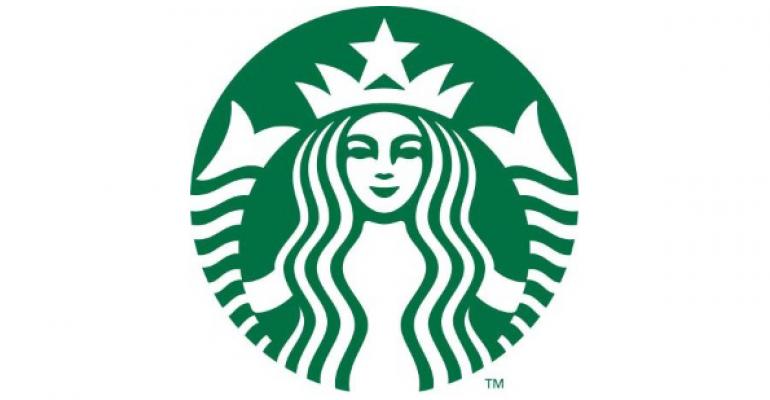Starbucks Corp. aimed to open a civil dialog about racial inequality this week, but the conversation has gotten a bit overheated.
On Monday, the Seattle-based coffeehouse chain announced a new program called Race Together that will launch Friday in partnership with USA Today. There will be a newspaper insert, also available in Starbucks units, as well as a website, in an attempt to spark a broad discussion and reexamination of how Americans can create a more empathetic and inclusive society.
“Racial inequality is not a topic we readily discuss. It’s time to start,” wrote Howard Schultz, Starbucks’ chairman and CEO, along with USA Today president and publisher Larry Kramer, on Starbucks’ website. “Conversation has the power to change hearts and minds.”
As part of that effort, Starbucks baristas have been voluntarily writing #racetogether on cups as they served beverages to promote a social media conversation. Workers were also allowed to engage with customers on the issue, the company said.
It’s all part of Schultz’s plan to use the coffeehouse chain’s scale for good, as he has in the past with a commitment to hire veterans, a request for customers not to bring guns into its coffeehouses, as well as supporting gay marriage and opposing bipartisan gridlock in Washington.
The initiative has been both praised and pilloried in a media firestorm. Across media channels, the initiative was described as both noble and inappropriate; not enough and too much; a failure and a clear sign on how badly such conversation is needed.
On Twitter, comments with the #racetogether hashtag included both naysayers and supporters.
Me when I heard about the whole #RaceTogether stuff. pic.twitter.com/vsKhCUMp1w
— The Gingerarchy (@asredasmyhair) March 19, 2015
@AnnCoulter #RaceTogether Inequality exists. The public reaction shows just how bad this conversation needs to happen
— True Free (@trunorthfree) March 19, 2015
Media pundits debated whether large corporations were the best forum to publicly take on social issues like race.
In the New York Times, op-ed columnist Charles M. Blow wrote that the motive is noble, “even if something about it feels a shade off. Wanting to do something — even this — has to have a greater moral currency than resigning oneself to doing nothing.”
Writing for Time magazine, NBA champion Kareem Abdul-Jabbar wrote the move has filled him with “shock and awe.
“I’m in awe of his courageous and good-hearted attempt to do something to bring about better awareness of racism. I’m in awe that he’s willing to put morality above profits. I’m in awe that he’s willing to endure the snarky ridicule and lame coffee jokes from pundits as well as the inevitable death threats from clueless trolls. All with nothing personally or corporately to gain — and a lot to lose,” he wrote. “But while in awe of his chutzpah, I’m also in shock that he thinks this will actually work.”
The initiative was born out of a series of open forum discussions on race Starbucks has hosted over several months in six cities, bringing employees together to share and speak out on the issue.
With news of racially charged violence sparking protests across the country, Schultz said he could not remain silent.
“We at Starbucks should be willing to talk about these issues in America,” Schultz said in a statement. “Not to point fingers or to place blame, and not because we have answers, but because staying silent is not who we are.”
Schultz defended the program in TV interviews Thursday, pledging to move forward.
Starbucks devoted half of its annual shareholder meeting on Wednesday to issues surrounding race.
Board member and president of Ariel Investments Mellody Hobson gave a moving speech encouraging the audience to be “color brave,” rather than color blind, and to look for opportunities to promote diversity.
“The first step toward action is awareness,” she said.
Meanwhile, some critics suggested that the Race Together initiative was simply a self-serving marketing campaign, using racial tension to boost its bottom line.
Atlanta-based branding consultant Laura Ries said a growing number of companies are taking on big, important issues of the day to make themselves part of social media conversations. But typically those efforts tie messages to the product.
“There’s nothing wrong with talking about race relations,” Ries told the Associated Press. “But is it something people naturally associate with Starbucks? It’s not.”
Juan Williams, co-host of Fox News’ “The Five” said the cynical response by so many indicates that “a lot of people don’t want this conversation. They prefer mocking the first step to taking the risky journey.”
But he noted that the nation’s civil rights movement may not have occurred if not for the many similar conversations held in churches, in pool halls while Dr. Martin Luther King, Jr., recruited supporters for the Montgomery bus boycott, or with marches, sit-ins and freedom rides that challenged racist attitudes excused as “tradition, convenient and comfortable.”
As one Twitter follower put it:
I think we should applaud @Starbucks for trying to make a positive difference. But no good deed goes unpunished on Twitter. #RaceTogether
— Van Jones (@VanJones68) March 19, 2015
Contact Lisa Jennings at [email protected].
Follow her on Twitter: @livetodineout





